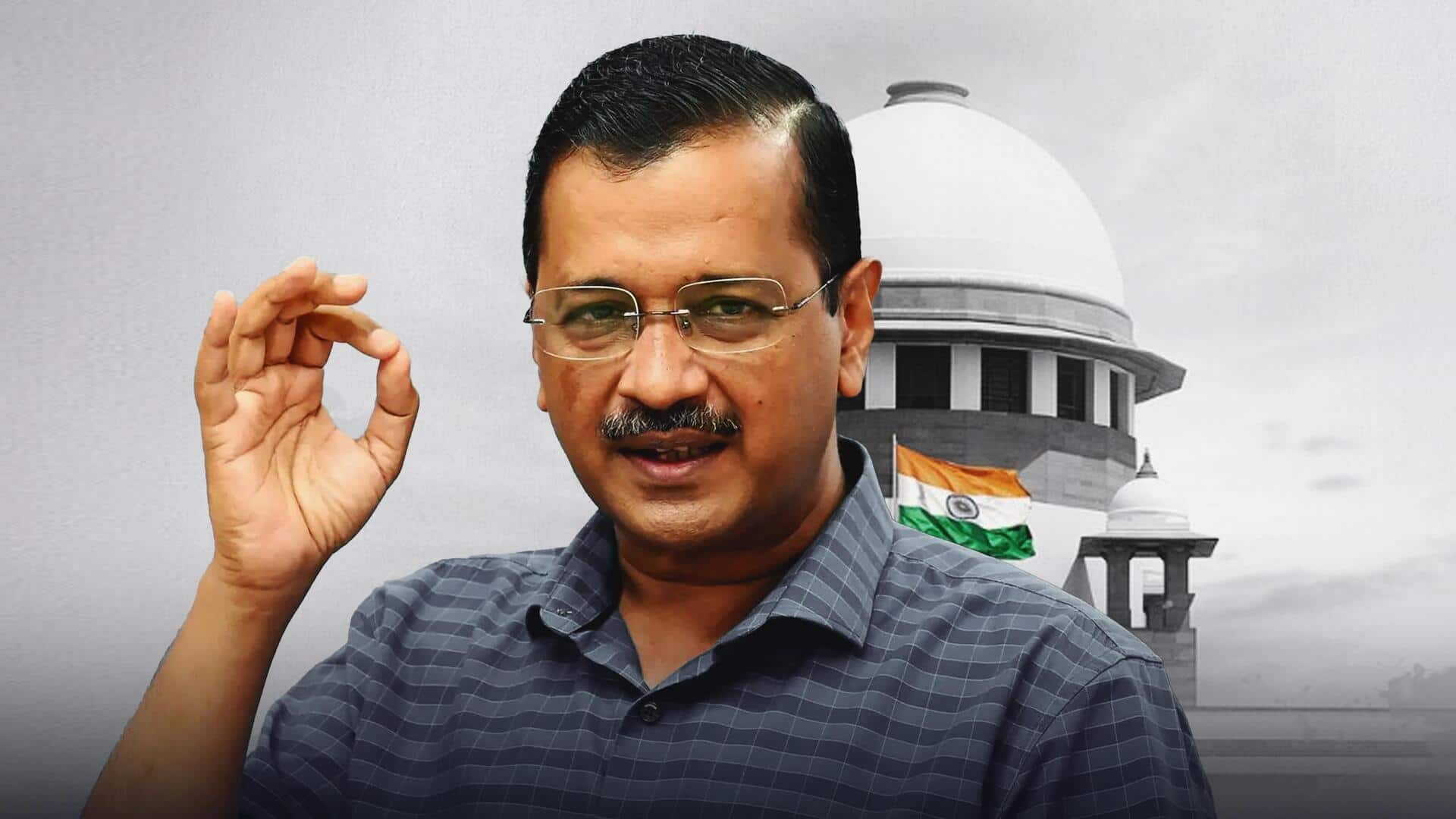
Delhi CM Kejriwal granted interim bail in ED probe
What's the story
The Supreme Court on Friday granted interim bail to Delhi Chief Minister Arvind Kejriwal against his arrest by the Enforcement Directorate (ED) in the excise policy case.
The SC also referred Kejriwal's petition challenging his arrest by the ED to a larger bench.
Notably, Kejriwal will remain under the Central Bureau of Investigation (CBI) custody in the case linked to the now-scrapped excise policy.
Context
Why does this story matter?
Kejriwal was arrested by the ED on March 21 in the excise policy case.
He was granted bail by a Delhi trial court on June 20, but the ED contested it, leading the Delhi HC to impose an interim stay on June 21 and a detailed stay on June 25.
Five days later, he was arrested by the CBI in the same case.
In court
Need to clarify legal framework: SC on ED arrests
The Supreme Court, in referring Kejriwal's petition against his arrest by the ED to a larger bench, noted the need to clarify the legal framework regarding the necessity and proportionality of arrests in ED cases.
The court also talked about the discretion given to investigating officers in making arrests, highlighting the importance of examining these aspects through a broader judicial review.
2-judge bench
'Can't ask Kejriwal to step down as CM'
A bench of Justices Sanjiv Khanna and Dipankar Datta delivered Friday's judgment.
The bench also noted that it lacks the authority to ask Kejriwal to step down as CM, adding that it is his own call.
To recall, the SC had reserved its decision in the case on May 17.
Background
Excise policy case explained
Central probe agencies have accused irregularities in altering Delhi's 2021-22 excise policy, alleging undue benefits to license holders.
Introduced in November 2021, the policy ended government outlet sales, permitting private entities to apply for licenses.
The government argued it would combat black marketing, increase revenue, and aid consumers.
Subsequently, Delhi reverted to the previous policy.
Kejriwal and the AAP have denied any misconduct.